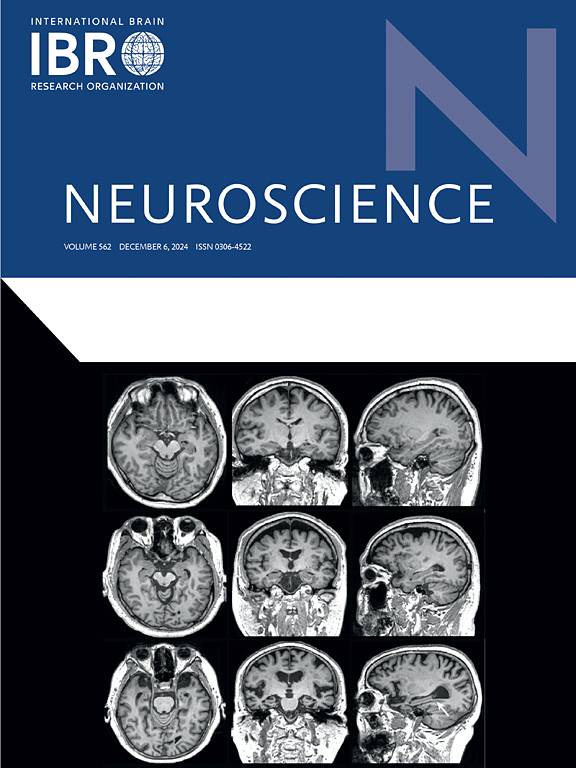在脂质管理之外:氯贝特通过抑制NF-κB在缺血性卒中中的抗神经炎症作用。
IF 2.9
3区 医学
Q2 NEUROSCIENCES
引用次数: 0
摘要
缺血性脑卒中是世界范围内导致死亡和残疾的第二大原因,神经免疫在其发生和发展中起着重要作用。IS的发病机制与多种代谢紊乱有关。然而,在临床实践中通过调节代谢紊乱来改善神经炎症的报道很少。通过在代谢相关化合物文库中筛选针对炎症细胞因子pro IL-1β的药物,我们首次发现抗高脂血症药物clofibrate具有抗神经炎症作用。然而,氯贝特在IS中发挥抗炎作用的作用及其潜在机制尚不清楚。为了进一步研究氯贝特的作用,我们在lps刺激的小胶质细胞模型和短暂性大脑中动脉闭塞的小鼠中给予氯贝特。值得注意的是,克洛贝特在体内和体外都降低了IL-1β的表达。同时,氯贝特减少缺血和再灌注后的梗死体积。此外,clofibrate通过调节NF-κB p65和NLRP3的表达来影响IS,从而抑制炎症因子的表达。这些发现表明,氯贝特可能是一种缓解IS神经炎症的前瞻性药物。本文章由计算机程序翻译,如有差异,请以英文原文为准。
Beyond lipid management: Clofibrate’s anti-neuroinflammation role via NF-κB inhibition in ischemic stroke
Ischemic stroke(IS) is the second leading cause of mortality and disability worldwide and neuroimmunity plays an important role in its occurrence and development. The pathogenesis of IS is associated with various metabolic disorders. Yet reports on the amelioration of neuroinflammation by modulating metabolic disorders in clinical practice are scarce. By screening drugs targeting the inflammatory cytokine pro IL-1β in the metabolism-related compound library, we first found that clofibrate, an antihyperlipidemic drug, has an anti-neuroinflammatory effect. However, the role of clofibrate in exerting anti-inflammatory effects in IS and its underlying mechanisms remain unclear. To further investigate the role of clofibrate, we administered clofibrate in an LPS-stimulated microglial cell model and in mice with transient middle cerebral artery occlusion. Notably, clofibrate lowered IL-1β expression, both in vivo and in vitro. Simultaneously, clofibrate reduced infarct volume after ischemia and reperfusion. Moreover, clofibrate affected IS by regulating the expression of NF-κB p65 and NLRP3, thus suppressing the expression of inflammatory factors. These findings suggest that clofibrate could be a prospective medication to alleviate neuroinflammation in IS.
求助全文
通过发布文献求助,成功后即可免费获取论文全文。
去求助
来源期刊

Neuroscience
医学-神经科学
CiteScore
6.20
自引率
0.00%
发文量
394
审稿时长
52 days
期刊介绍:
Neuroscience publishes papers describing the results of original research on any aspect of the scientific study of the nervous system. Any paper, however short, will be considered for publication provided that it reports significant, new and carefully confirmed findings with full experimental details.
 求助内容:
求助内容: 应助结果提醒方式:
应助结果提醒方式:


